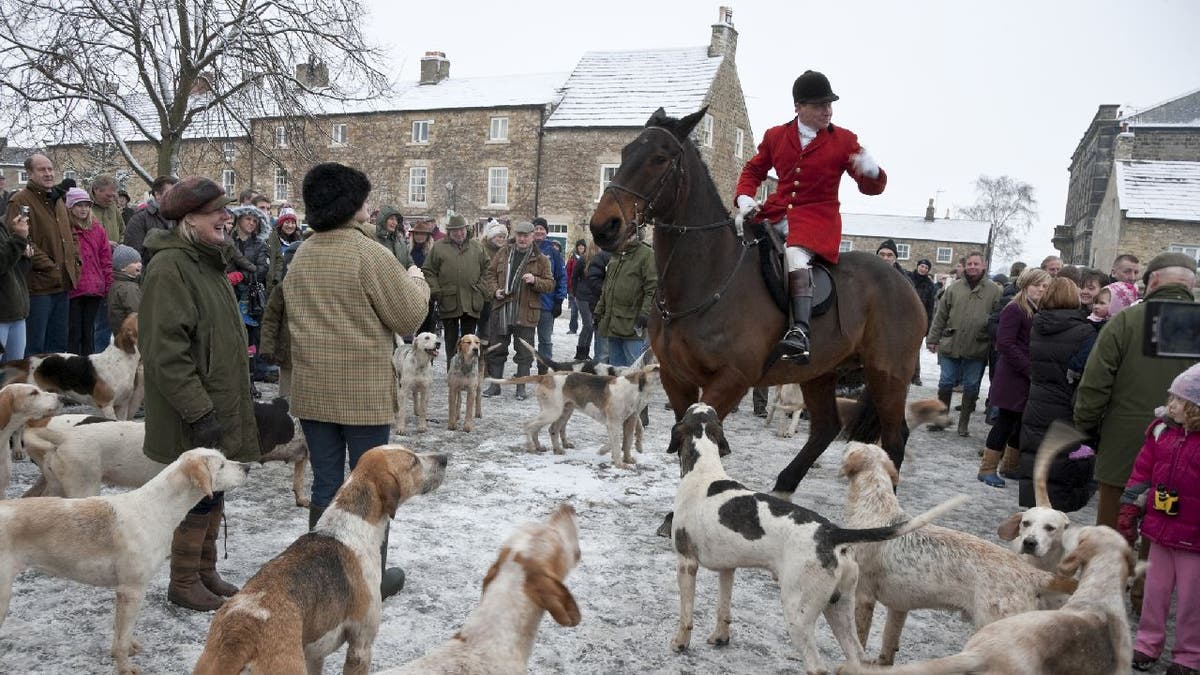Fox News Flash top headlines for December 26
Fox News Flash top headlines are here. Check out what's clicking on Foxnews.com.
The day after Christmas – Dec. 26 – is known as Boxing Day in the U.K. and the British Commonwealth.
Boxing Day is recognized as a public or bank holiday that provides time off for non-essential personnel, according to National Today, an online holiday calendar.
The day’s origin is reportedly unknown, but historians have found the term entered the Oxford English Dictionary in 1833 and was referenced in Charles Dickens' novel "The Pickwick Papers" in 1836.
AP EXPLAINS: WHAT IS BOXING DAY AND HOW DID IT GET ITS NAME?
Boxing Day was likely an already established tradition before these 19th-century pop culture moments, according to History.com, a digital news source for the A+E Networks’ History Channel.

Boxing Day is a British holiday that's celebrated on Dec. 26 – the day after Christmas. (iStock)
History.com reports that researchers are split between two theories about Boxing Day’s potential origins.
The first theory suggests Boxing Day may have come to be when British aristocrats distributed small gifts, money and Christmas dinner leftovers to household servants and employees after holiday festivities concluded.
"These boxes were, in essence, holiday bonuses," History.com wrote in a "Why is the day after Christmas called Boxing Day?" report.
The second theory suggests Boxing Day may have evolved from the donation boxes churches put out to collect alms (money or food) to help people in need throughout the advent season, which typically runs from Nov. 30 to Dec. 24, according to National Geographic.

Fox hunting was once a common Boxing Day tradition. The sport was banned in Scotland, England and Wales in the early 21st-century. Here in this 2010 photo, a costumed red coat fox hunter speaks to a crowd at a marketplace in Masham, North Yorkshire, from his saddled horse before a ceremonious Boxing Day fox hunt. (iStock)
"Clergy members distributed the contents of the boxes to the poor on December 26, which is also the feast of St. Stephen, the first Christian martyr and a figure known for acts of charity," History.com reports.
Today, Boxing Day is celebrated in the U.K. nations England, Scotland, Wales and Northern Ireland, and British Commonwealth countries, including Canada, Australia and New Zealand, according to National Today and History.com.
Common Boxing Day celebrations reportedly include shopping, visiting friends and family, giving back to charities and watching sporting events, including soccer, cricket, swimming and horseracing.
Fox hunting was once an annual Boxing Day tradition, but the sport was banned in Scotland in 2002 and in England and Wales two years later, according to New World Encyclopedia, a trademarked online information resource.
CLICK HERE TO SIGN UP FOR OUR LIFESTYLE NEWSLETTER
Countries that have bans on fox hunting reportedly simulate the sport by allowing participants to follow artificially laid trails to track foxes but not kill the furry animals.
Protestors have objected to legal and illegal fox hunting at sanctioned Boxing Day events throughout the U.K., according to multiple national news outlets, at the time of publication.









































